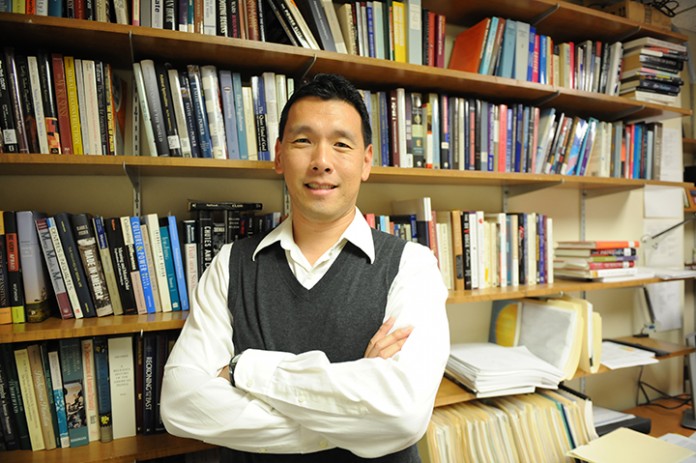
Young, white students at elite universities stereotype Asian-Americans as more competent than blacks and Latinos, a Baylor study found in December 2015.
“It started off with an observation that a lot of the research out there on this concept of the model minority myth about Asian-Americans mainly focused on media representations that Asian-Americans are always perceived as this racial minority that outperforms everybody else,” said Dr. Jerry Park, associate professor of sociology.
To investigate whether these media representations of Asian-Americans are in line with people’s perceptions, Park and researchers from other universities looked at responses from the National Longitudinal Survey of Freshmen. This survey asked 898 participants from highly selective universities across the country, such as Oberlin College and Rice University, how they would rate groups in terms of their intelligence, perseverance and work ethic.
Park and his fellow researchers found evidence that white students do perceive Asian-Americans as more competent, and this stereotype makes the students more likely to agree that blacks and Latinos do not work hard enough.
“We were just floored when we saw that,” Park said. “It confirmed what folks have been saying about media representations and the implications of those media representations when Asian-Americans are portrayed or viewed as more competent than other groups. You wind up having this connected relationship to your attitudes about whether or not there is such a thing as racial inequality, especially directed against blacks and Latinos.”
The results of this study have potential implications in multiple domains, Park said. Stereotypes about Asian-Americans could affect one’s belief about racial inequality, which could have consequences in a person’s education, career or financial life. These stereotypes about Asian-Americans also tend to endure despite the education of a person’s parents or the diversity of a person’s friend group, the study found.
Houston junior Kat Largent has experienced stereotypes towards herself and other Asian-Americans from students at Baylor. Largent is a Baylor Business Fellow studying marketing and communications.
“I have experienced that there are stereotypes,” Largent said. “Especially at Baylor, where there are so many people in health science studies. People kind of assume I’m doing the same and are usually surprised to find out I’m doing something quite different.”
Though Largent said she’s not too bothered by these stereotypes, the assumptions individuals make about her academic pursuits are in line with the study’s findings.
The study was published in Social Psychology Quarterly. Park’s previous work has been featured in several other publications. He specializes in religious media consumption, religious attitudes of academic scientists and Asian-American religiosity.
“He’s nationally recognized as an expert on the subject of race and ethnicity,” said Dr. Carson Mencken, the chair of the department of sociology. “He has a good knack for finding trends in data and explaining that in ways that are sociological and tie their implications both to a broader context.”
Park is now working on a follow-up study to investigate whether these stereotypes can also be observed among black, Latino and Asian students, and what implications they have on their racial attitudes and beliefs about inequalities in America.





